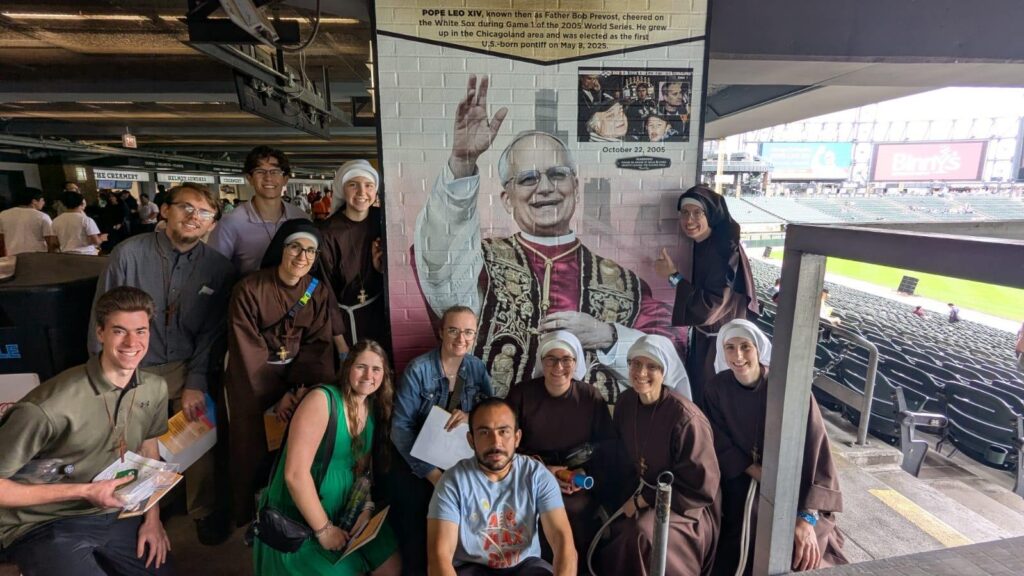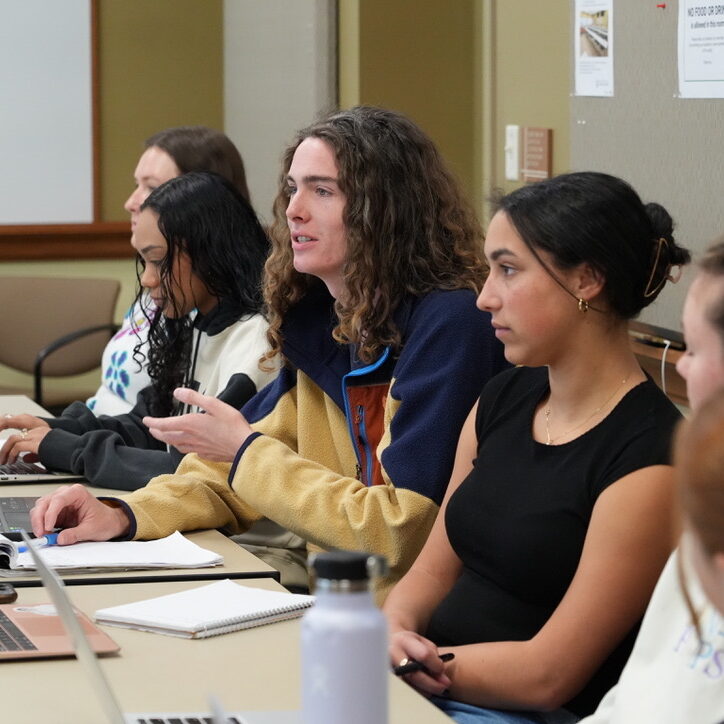Catholic Social tradition (CST) Minor
Because Justice is Major
The Minor in Catholic Social Tradition is an interdisciplinary minor that explores the rich tradition of the Church’s social doctrine. Students will gain a deep knowledge of both the magisterial texts of this tradition and the “signs of the times” that inspired popes, synods, and bishops’ conferences to expand this body of teaching. They will also become familiar with the scholarship of theologians actively working in this field.
CST is rooted in several core concepts, including: justice, the common good, solidarity, human dignity, integral human development, subsidiarity, integral ecology, and the preferential option for the poor. These concepts feature throughout the courses on the Minor.

“CST is more than just an academic pursuit — it impacts how we think about ourselves and how we can enact good in the world around us. The CST minor was an indispensable component of my ND education.”
– Bianca Widjaja ’23
Why study Catholic Social Tradition (CST)?
The Church’s social doctrine begins with the pontificate of Leo XIII when he issued Rerum Novarum (1891), an encyclical letter dedicated to the plight of the working poor in industrial Europe. Since then, popes have drawn upon Rerum Novarum to broaden Pope Leo’s set of social, economic and political concerns. Popes, regional bishops’ conferences, and Synods continue to address urgent local and global issues across all spheres of life from the family to international politics.

Today, the human family faces several urgent moral challenges. In response to this, the Church’s social teaching seeks to engage in collaborative intellectual engagement on matters such as ecological justice, human trafficking, homelessness, poverty, war and conflict, and migration. In so doing, it helps advance interdisciplinary, sophisticated thinking that is rooted in human dignity and the common good.
Graduates of Notre Dame assume leadership positions in a broad spectrum of professions and spheres of life, ranging from politics, law, education, science, the media, technology, and the military. This Minor in Catholic Social Tradition is a resource for Notre Dame students to critically engage with the Church’s social mission in the world, and to be inspired to become agents of positive social transformation throughout their lives.

“Combining CST with my major in environmental engineering and minor in sustainability has given me a lens to see the world as one with interconnected people working towards a common good in a common home.”
– Gabriel Gaspar ’18
What will you do in your Catholic Social Tradition (CST) minor?
The Minor in Catholic Social Tradition involves 15 credits of coursework. Students must take five 3-credit courses, which includes a Gateway course (3 credits), a Senior Capstone course (3 credits), and three electives.
- A vision of the good society. In the CST Core course (3 credits) you’ll gain a deeper understanding of justice through CST concepts such as the Common Good, Rights and Responsibilities, Option for the Poor, Human Dignity, Subsidiarity, and Peace.
- Interdisciplinary study. Engage with classical texts and tradition in the full range of social spheres — economic, political, religious, cultural, and familial — with students from across the University.
- A range of electives (9 credits): Choose from nearly 100 different courses in fields as diverse as neuroscience, sustainability, and design, examining topics such as immigration, entrepreneurship, medical ethics, and human development.
- Capstone project (3 credits): Creatively integrate your major and minor fields of study throughout your time at Notre Dame. Students can write a paper, do a research project, or develop a creative work that synthesizes what you have learned.


If you have questions about the CST minor, please contact one of the co-directors:
Suzanne Mulligan at smulliga@nd.edu or
Margaret Pfeil at mpfeil1@nd.edu.
